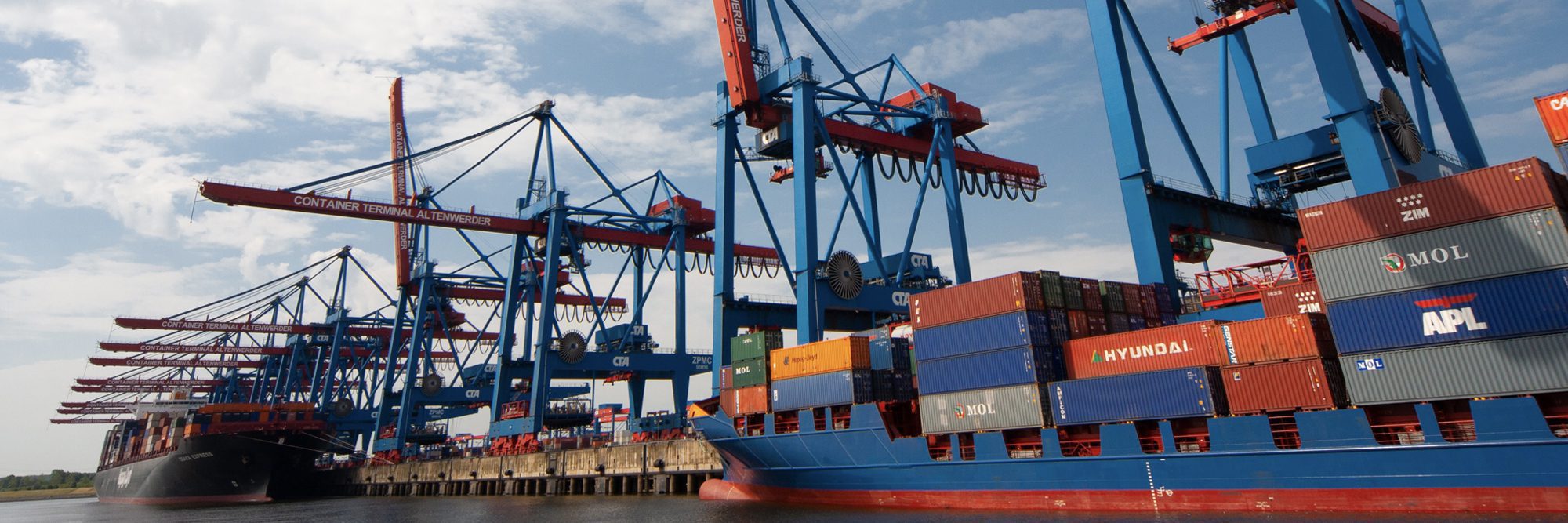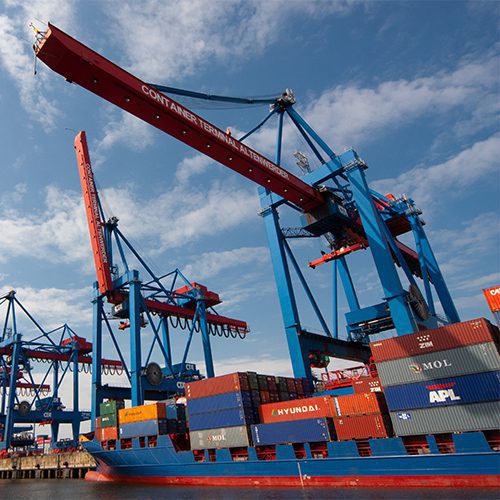We would like to thank all the member companies who participated in the 2021 election. We are happy to announce and introduce the three returning directors as well as the two new incoming directors, who will officially begin their three-year terms at the upcoming board meeting in July:
- JONATHAN CEDAR, BioLite CEO and Co-Founder
- PHYLLIS GROVE, Hydro Flask VP Marketing & eCommerce
- SARAH MATT, Toad&Co VP Brand, Marketing & Sales
- BRUCE OLD, Patagonia VP of Global Wholesale
- JANICE TENNANT, Merrell Chief Marketing Officer
FULL BIOS BELOW
We appreciate the continued service of the existing directors and look forward to bringing on two new directors representing the outdoor industry. It’s more important than ever that OIA represent the breadth of brands, retailers and consumers who love the outdoors.
The OIA board of directors provides guidance for the organization’s overall strategic direction, establishes policies and positions, monitors the association’s financial health, programs and overall performance and prepares the industry and association for the future, ensuring OIA’s success as an organization and for its members. The five directors in the class of 2021 bring the experience, perspectives and skill to help guide our industry out of the pandemic and into a future with thriving outdoor businesses, thriving outdoor communities and a thriving planet.
[panini-row layout=”row-full” row-width=”large” spacing=”margin-top-40 “]
[panini-column ]
[paniniblock template=”basic/html” attribute-data=”name:template;type:text;label:Block”]
[content name=”html” label=”Raw HTML”]
 Jonathan Cedar
Jonathan Cedar
BioLite CEO and Co-Founder
What relevant business or industry experience would you bring to the OIA Board to help achieve and promote OIA’s work?
Over my first term as an OIA Board Director, I have focused my efforts on strengthening our sustainability pillar and reinforcing financial resilience in the face of COVID and a changing marketplace. If elected to a second term, I would continue to support OIA’s focus on climate action as well as advocate for evolving our service offerings to maximize member value.
The outdoor industry has a proud history of leading with our values and being rewarded by our customers for doing so. As a board member, I would leverage my experience founding two mission-driven organizations, BioLite and Climate Neutral, to coach the continued development and refinement of our Climate Action Corps with a focus on enabling our member companies to achieve quantifiable carbon reductions that are both believable and motivating for our collective consumers.
The pandemic has accelerated changes in how consumers interact with brands and retailers, and OIA needs to evolve our service offerings in ways that support the new landscapes our members are navigating. Some areas I believe OIA can help member brands navigate include evolving strategies for go-to-market, collecting market intelligence, developing and retaining talent and building a more inclusive industry for both our teams and customers.
Background:
Jonathan Cedar is CEO and co-founder of BioLite, a social enterprise on a mission to empower people and protect the planet through access to renewable energy. To date, BioLite has reached over 2 million people living in energy poverty with our clean cooking, charging and lighting products. Our unique business model, called Parallel Innovation, invests deeply in renewable energy technologies and then commercializes those products in both outdoor recreation and emerging markets. The income from our recreation market sales generates the investment capital needed to reach scale in our emerging markets, putting the company on a path to lift 20 million people out of energy poverty by 2025.
Jonathan is also the co-founder and a board director at Climate Neutral Certified, a nonprofit that seeks to accelerate the transition to a net-zero economy by enabling consumers to make climate-responsible purchasing decisions. To date, Climate Neutral had certified over 300 brands, representing over $4 billion in annual consumer spending and avoiding more than 1M tCO2e in 2020.
Before starting BioLite, Jonathan was a senior design engineer at Smart Design, a New York-based product development consultancy, where he led teams that created consumer durable products ranging from housewares to biomedical devices. Before working as a product designer and entrepreneur, Jonathan began his career in the outdoor industry-leading youth backpacking expeditions, working as a ski patroller, ski instructor and environmental educator on an ocean-going research school ship. Jonathan holds a BA in engineering and environmental science from Dartmouth College.
[/content]
[/paniniblock]
[/panini-column]
[/panini-row]
[panini-row layout=”row-full” row-width=”large” spacing=”margin-top-30 “]
[panini-column ]
[paniniblock template=”basic/html” attribute-data=”name:template;type:text;label:Block”]
[content name=”html” label=”Raw HTML”]
 Phyllis Grove
Phyllis Grove
Hydro Flask VP Marketing & eCommerce
What relevant business or industry experience would you bring to the OIA Board to help achieve and promote OIA’s work?
Over my first term as an OIA Board director, I have enjoyed working with the OIA staff and board to deepen and expand engagement with our members and support our work to progress Thriving Business, Thriving People and a Thriving Planet. My 20+ years in marketing leadership positions, including leadership roles at outdoor brands Hydro Flask, KEEN and Mountain Hardwear, have helped inform my contributions to OIA’s strategic plan evolution and the organization’s strengthened focus on our members. I believe my customer orientation combined with my marketing and strategic leadership experience will be an important match for the OIA Board as we continue to focus on adding member value and finalizing the strategic plan for our next five years and beyond.
For the last two years, I have chaired the OIA Board’s Nominating & Governance Committee. My experience leading and developing teams has helped the committee work to continually improve the board’s capabilities and diversify its composition. As a lifelong hiker, I find inspiration and rejuvenation in the outdoors and am passionate about making a national impact: encouraging more people to recreate outside, protecting the outdoors and supporting the outdoor industry.
Background:
Phyllis Grove is a seasoned executive with marketing, e-commerce and general management experience and has been the VP of Marketing & eCommerce at Hydro Flask for the last five years. She decided to align her work with her love for the outdoors during the second phase of her career. She first joined Mountain Hardwear as the global head of marketing and later was the VP of Marketing for KEEN. She loves working in an industry and for brands committed to helping people lead happier, healthier lives by spending time outdoors.
Phyllis has demonstrated success understanding the customer, building brands, growing businesses and developing high-performing teams. Prior to joining the outdoor industry, Phyllis worked in a variety of industries, including consumer packaged goods, food, consumer electronics and natural products. Phyllis built her strategic marketing foundation at Procter & Gamble and Dreyer’s Grand Ice Cream. Her other functional roles include leading product management and heading a business team at Kensington Technology Group. She received a Bachelor of Science in business administration, with a concentration in marketing and international management, and a minor in French from Georgetown University.
[/content]
[/paniniblock]
[/panini-column]
[/panini-row]
[panini-row layout=”row-full” row-width=”large” spacing=”margin-top-50 “]
[panini-column ]
[paniniblock template=”basic/html” attribute-data=”name:template;type:text;label:Block”]
[content name=”html” label=”Raw HTML”]
 Sarah Matt
Sarah Matt
Toad&Co VP Brand, Marketing & Sales
What relevant business or industry experience would you bring to the OIA Board to help achieve and promote OIA’s work?
After 15 years at leading New York City B2B and B2C marketing agencies, in 2013 Sarah turned to independent consulting and relocated to Santa Barbara, California. Sarah wanted to apply her experience in positioning and marketing Fortune 500 companies to ones similar to the company she had grown up in–an entrepreneurial, fourth-generation family beer business. While enjoying a diverse and engaging client roster, Sarah was hired by Horny Toad to rebrand and subsequently relaunch the company as Toad&Co. Sarah officially joined the Toad&Co team in 2015 to lead the marketing momentum behind its re-launch. Since joining, Sarah has overseen e-commerce and wholesale sales and today sits on the executive leadership team as VP of brand, marketing and sales. Sarah’s passion is people–from consumer understanding and brand connection, to volunteering with the community foodbank and Women’s Economic Ventures Group, to her strong commitment to friendships and family. Sarah’s strong belief that our outlook drives our outcome, combined with a solution-oriented, hard-working disposition and personable approach is what she attributes her success to.
Background:
I believe Outdoor Industry Association (OIA) has an opportunity to drive greater awareness of its principal beliefs and purpose among its members, as well as a broader consumer audience. The result of such efforts would be (i) a deeper engagement in existing member organizations, (ii) expanded membership within and outside the industry and (iii) potential restructured revenue opportunities. I would leverage my career in consumer insight, brand positioning and marketing to understand key connection points to help shape the OIA message and communications strategy. As an industry, we have benefited from the global COVID-19 pandemic and the shift to everyone being outside. Now is the time to intersect and build on that momentum to drive inclusivity, accessibility and our next generation of ambassadors to continue to scale environmental awareness and a sustainable lifestyle. OIA has a tremendous opportunity to be at the forefront of this movement, and I welcome the opportunity to contribute to it.
[/content]
[/paniniblock]
[/panini-column]
[/panini-row]
[panini-row layout=”row-full” row-width=”large” spacing=”margin-top-30 “]
[panini-column ]
[paniniblock template=”basic/html” attribute-data=”name:template;type:text;label:Block”]
[content name=”html” label=”Raw HTML”]
 Bruce Old
Bruce Old
Patagonia VP of Global Wholesale
What relevant business or industry experience would you bring to the OIA Board to help achieve and promote OIA’s work?
I have just completed my first term as an OIA Board member, where I continue to serve on the Sustainable Business Innovation (SBI) Committee. Within my first term and alongside other committee members and OIA staff, I participated in the development and go-forward plan for our industry’s position on climate via the Climate Action Corps. This key initiative for OIA, with over 100 member companies participating, puts our industry and members in a leadership position relative to measuring, planning and reducing our emissions. I also led and participated in task forces focused on the following areas: programs to grow member value, funding for deeper or additional programming from OIA and oversight on the health of the Association in and out of this pandemic time.
My recent work at Patagonia has encompassed areas like the establishment of our Justice and Antiracism Strategy, navigating pandemic impacts and developing the next generation of industry leaders. If elected to a second term, I will use my experience and expertise to help with the following key areas for our members:
Participation – We need to expand our outdoor experiences for everyone. Inclusivity and encouraging the enjoyment of the outdoors or outdoor sports at all levels will have a positive effect on all our businesses.
Diversity and Inclusion – Many of us are learning the upsides that come with creating outcomes based on belonging and equity. This work and our industry embracing these changes will be imperative for our customers, businesses and members.
Climate and Wilderness protection – With more participants enjoying the outdoors, we get more help and support protecting it. It’s also critical for the industry to have a point of view here, which we are doing at OIA through the Climate Action Corps.
The Pandemic – While some retailers and brands in our industry have weathered the pandemic well financially, there are many challenges ahead as we confront the next chapters. OIA needs to play a large part in helping our members navigate what’s next.
Background:
Bruce Old works at Patagonia where he oversees the Wholesale Sales, Operations, and Service teams. His first job at Patagonia was in the Retail stores where he started as a shipping coordinator, and he has held about 15 or so different roles across the organization since those early days. Bruce’s roles have always been focused on the customer experience – spanning our Patagonia dealers, our retail stores and our digital channels. He and his family live, work and enjoy our public lands while based in Reno, Nevada.
Founded by Yvon Chouinard in 1973, Patagonia is an outdoor apparel company based in Ventura, California. A certified B Corporation, Patagonia’s mission is to save our home planet. The company is recognized internationally for its commitment to authentic product quality and environmental activism, donating 1% of sales annually, contributing over $100 million in grants and in-kind donations since 1985.
[/content]
[/paniniblock]
[/panini-column]
[/panini-row]
[panini-row layout=”row-full” row-width=”large” spacing=”margin-top-30 “]
[panini-column ]
[paniniblock template=”basic/html” attribute-data=”name:template;type:text;label:Block”]
[content name=”html” label=”Raw HTML”]
 Janice Tennant
Janice Tennant
Merrell Chief Marketing Officer
What relevant business or industry experience would you bring to the OIA Board to help achieve and promote OIA’s work?
I am honored to have the opportunity to be considered for this OIA Board position. It has been a lifelong passion of mine to increase participation of diverse populations in the outdoors by combining my degree in physical and health education from Queen’s University in Kingston, Canada, with my over 15 years of brand marketing experience across such well-recognized brands as Tropicana, Quaker Oats, Huggies and Merrell.
If elected as a new OIA Board member, I would bring to the board a consumer-driven strategic marketing perspective to help the organization assess and research the changing landscape, identify key strategic pillars of growth and develop action plans to help drive both growth and greater awareness of OIA. With a proven track record of doing this successfully for consumer brands and nonprofit organizations, I know I can help OIA navigate today’s complex issues of diversity, equity and inclusion; climate change; and funding alternatives. However, since many of you are not familiar with me, I leave you with these words:
“Working with Janice, the team feels inspired to push ourselves to the limit of creativity and solutions that solve true business issues.” — Shelbie Stewart, former SVP, Executive Group Director, Geometry Global
Background:
Janice Tennant is chief marketing officer at Merrell who believes that everyone should have the right to experience the joys of the outdoors. For over 15 years, she has tapped her passion for consumers to grow globally recognized brands at PepsiCo, Kimberly-Clark and Wolverine Worldwide. With a commitment to building a marketing culture of curiosity and innovation, she continues to find new ways to empower the next generation of marketers through the labyrinth of the digital world by creating brands with purpose that drive more meaningful consumer connections.
Janice holds an MBA from the University of North Carolina, Chapel-Hill, and a B.A. and B.P.H.E. from Queen’s University in Canada. On weekends, you will find her hiking across Michigan with her two boys with the goal of passing on the joy of the outdoors.
[/content]
[/paniniblock]
[/panini-column]
[/panini-row]











 Jonathan Cedar
Jonathan Cedar Phyllis Grove
Phyllis Grove Sarah Matt
Sarah Matt Bruce Old
Bruce Old Janice Tennant
Janice Tennant

